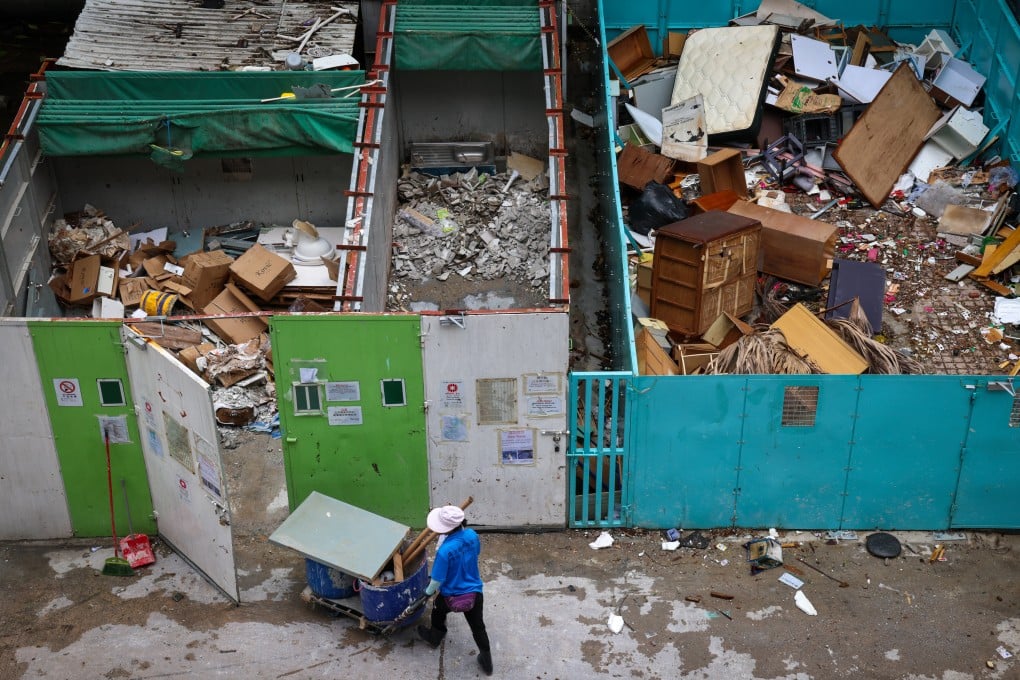Advertisement
Hong Kong’s waste-charging scheme: a timeline of 2 decades of deliberations and delays
- First proposed in 2004, the pay-as-you-throw scheme took years of preparation and public consultation before legislature passed the bill in 2021
- Post charts the journey of the controversial waste-charging scheme from its inception to its failure to launch
Reading Time:3 minutes
Why you can trust SCMP

Hong Kong’s twice-postponed waste-charging scheme was declared suspended on Monday, after two decades of debate and deliberations.
First proposed by authorities in 2004, the pay-as-you-throw scheme took years of preparation and public consultation before the legislature passed the bill in 2021.
However, the scheme was met with backlash from politicians, residents and stakeholders from the recycling business.
Advertisement
That prompted the government to push it back twice, from last December to April, then to August 1, before ultimately putting it on hold.
The Post chronicles the scheme’s development over the years.
Introduction: 2005-06
In December 2005, the then Environment, Transport and Works Bureau set out a policy framework for the management of municipal solid waste for the next nine years, with the idea of charging residents over non-recyclable garbage.
Advertisement
Select Voice
Choose your listening speed
Get through articles 2x faster
1.25x
250 WPM
Slow
Average
Fast
1.25x